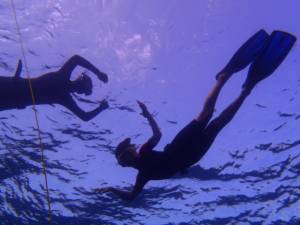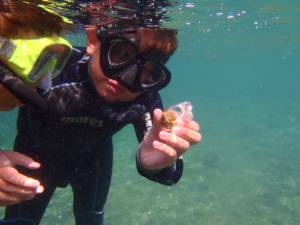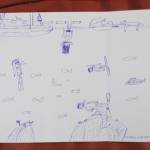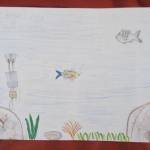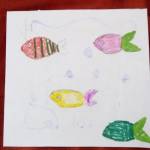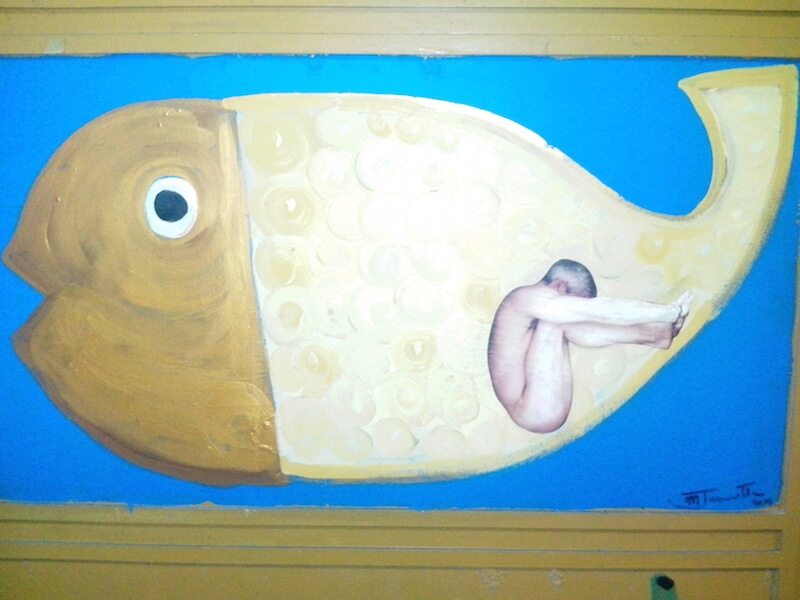
How to Introduce Kids to Freediving: an Experience’s Story.
Once upon a time there was a little fish that didn’t want to swim on the surface….
“Did I ever tell you that my son prefers to go underwater than swimming!?”
During the last ten years that Katabasis started organizing Summer Freediving and Water Sports Camps for young children and teenagers, this is one of the things that I have heard more often then ever. It’s one of the things that always brings me back memories of my childhood where I was ‘eagerly encouraged’ by my parents to take part in swimming lessons at the pool; I immediately recall the shouting from my swimming teacher (an Austrian lady with the grace of an elephant), the fatigue and exhaustion in doing endless lengths of the pool back and forth…not to mention the unpleasant taste of the chlorine! So it obviously wasn’t what you might call a stimulating experience and clearly it wasn’t the spark which further on in my life made me decide to dedicate my life to water and more specifically to the Sea.
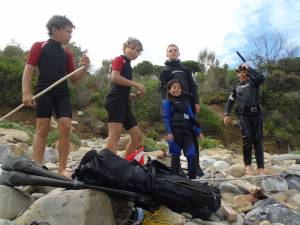

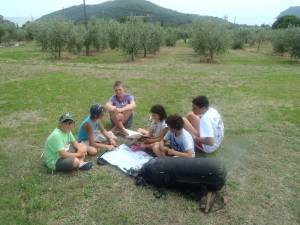 At that time, and I’m talking about around 40 years ago now there was really so little time left over after swimming lessons for playing in the water; we were given the responsability of introducing the underwater world to new students in a rather strict and structured way. What often happened though and still happens today, was that a child would become overloaded with emotions due to the eager parents creating an unecessary fear and aprehension which then needed to be overcome and understood. But it didn’t always go like this…
At that time, and I’m talking about around 40 years ago now there was really so little time left over after swimming lessons for playing in the water; we were given the responsability of introducing the underwater world to new students in a rather strict and structured way. What often happened though and still happens today, was that a child would become overloaded with emotions due to the eager parents creating an unecessary fear and aprehension which then needed to be overcome and understood. But it didn’t always go like this…
Fortunately sometimes the father would often go to the Sea, or maybe even go spearfishing, which in the eyes of the child made him become a valuable hero and role model with which to aspire towards!
But let’s get back to the point about the child who liked to stay underwater rather than on top of it. In the past has there really ever been anyone capable of understanding their anticipations and capabilities? Or maybe they were far too busy concentrating on teaching breathing rhythms and arm strokes. Were the teachers ever really sensitive enough to think outside the box of teaching lengths and front crawl? I really don’t think they were!
Fortunately enough, teaching methods have since changed drastically and therfore during a swimming course there is always an integral part of the lesson, especially for very young children consisting of games and underwater breath holding, a.k.a freediving! So finally we have a means of communicating with young children and their development by using games, such as collecting objects from the bottom of the pool and diving into bubbles. Mini-swimmers are asked to look at each other underwater, stimulating their underwater thinking process (a truely marvellous and emotional discovery) and then encouraged to try doing underwater somersaults which with time eventually become duckdives! We point out to them that in order to avoid that unpleasant feeling, they need to compensate their ears…just hold your nose and blow gently. By following these simple steps these small little fish transform their fears and lack of motivation into fun, and slowly but surely start to feel comfortable in a new home that is waiting to be explored.
The freediving summer camp for young children can best be described by using the following metephor: ‘a safe haven where little boats can be safely accompagnied towards their first discovery at Sea, transforming the waves into a slide, the currents into a carousel, and the snorkel into a microphone with which to interview the fish!’ It’s a place where we talk about a Sea full of fun and discovery, of trust and freedom, but also of course about rules and a sense of responsability.
Because it is also possible for young children to develop their sense of awareness, which is a vital skill and means with which to understand what happnes to yourself and others as we gently wander into the Sea.
I remember one Summer Camp in particular, during a nice chat with the children after a teaching session at Sea (what in the adult world is also known as a debriefing), I asked the children to relax, breathe slowly and deeply. Once their eyes were closed they were told to think once more about what they had seen underwater, and then asked who felt like drawing it. You would be amazed by what I saw. It was as if all of a sudden these little freedivers had in their tracks become busy little avante-garde artists! Once they had all finished I asked them to describe the results of their immagination, or rather describe the pictures they had drawn. I still to this day remember these moments as being such an unforgettable and emotional experience. One of the children described their secret den underwater, which was a cave decorated with jars of Nutella, whilst another drew himself as a small fish in between two dragons, one red and one blue; later on I found his parents bickering between themselves.
Teaching freediving to children is about talking to them about how to get close to the Sea, encouraging them to do so either by playing, speaking to them about relaxation and slience, accompanying them on their first adventures into the blue by amphasizing the importance of self-awareness and about looking out for their companions. It’s only by doing this that they will always take with them the fact that they need to be responsabile even whilst playing, and that they will realize this each and every time they go into the Sea. For freediving instructors such as ourselves, accomplishing all this is a great joy and satisfaction; real emotion!
And so finally through the eyes of our young students being able once more to see the Sea in the same way that we used to when we were young has enabled us to feel the emotions that still to this day are part of each and every dive into this blue world that has changed our lives forever.
Carlo Boscia

